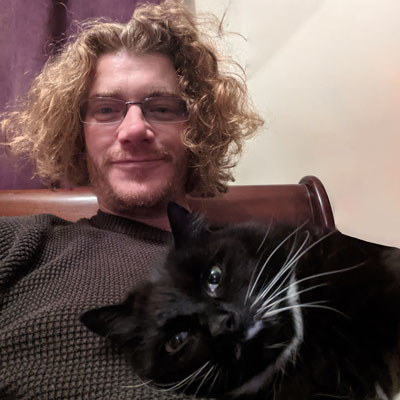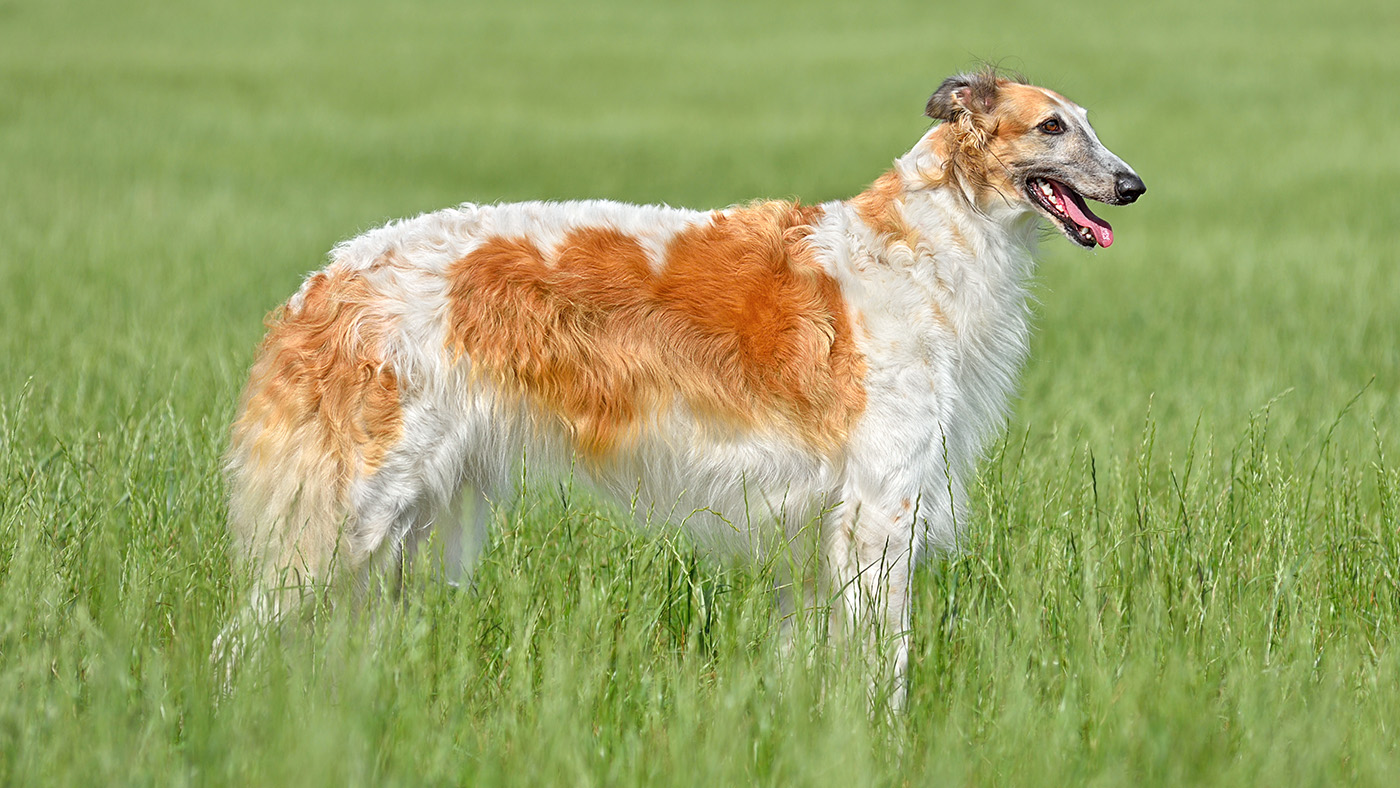How to brush a dog that hates being brushed
Does your dog hate being brushed? Here's why this happens and what you can you do make them feel more comfortable
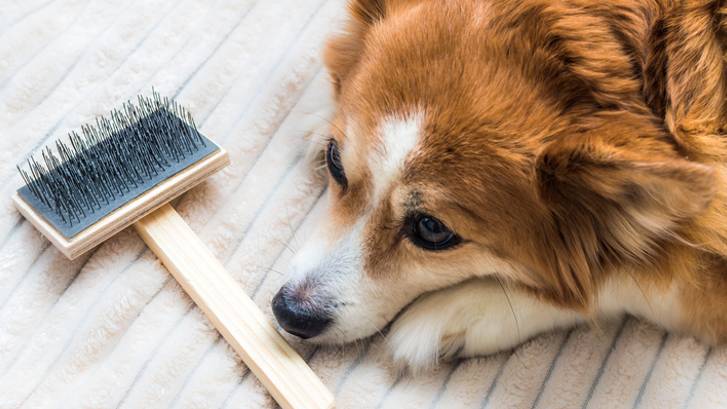
If your hairy hound flees at the sight of your grooming kit, then knowing how to brush a dog that hates being brushed can be an essential skill.
Grooming is a great way to get rid of excess fur, dirt, debris; it keeps their hair glossy and their skin healthy and it should be a great way to bond with your four-legged friend, but it can become a challenge if your dog shies away or turns aggressive.
Many dogs have an aversion to being groomed, but there are a few ways for you to teach your furry friend that grooming is a positive thing, and one they can learn to accept and enjoy.
From knowing how to groom a dog, to choosing the right brush for your pooch and building a positive association with the act of grooming, this article will explain why your dog dislikes being brushed and what you can do to help them embrace it.
Why doesn't your dog like being brushed?
1. Bad experience
There are various reasons for your dog to be bounding away and hiding behind the sofa at the sign of a brush. Dogs have long memories for things that have hurt them or scared them in the past, and if they associate those feelings with the shape of a brush, they know to stay away.
For some reason they are feeling fear, anxiety or stress connected to the experience of being brushed. It's possible they've had a bad brushing experience before, that they have sensitive skin which means rigorous brushing hurts, or that they associate a brush in the hand as potential sign of mistreatment.
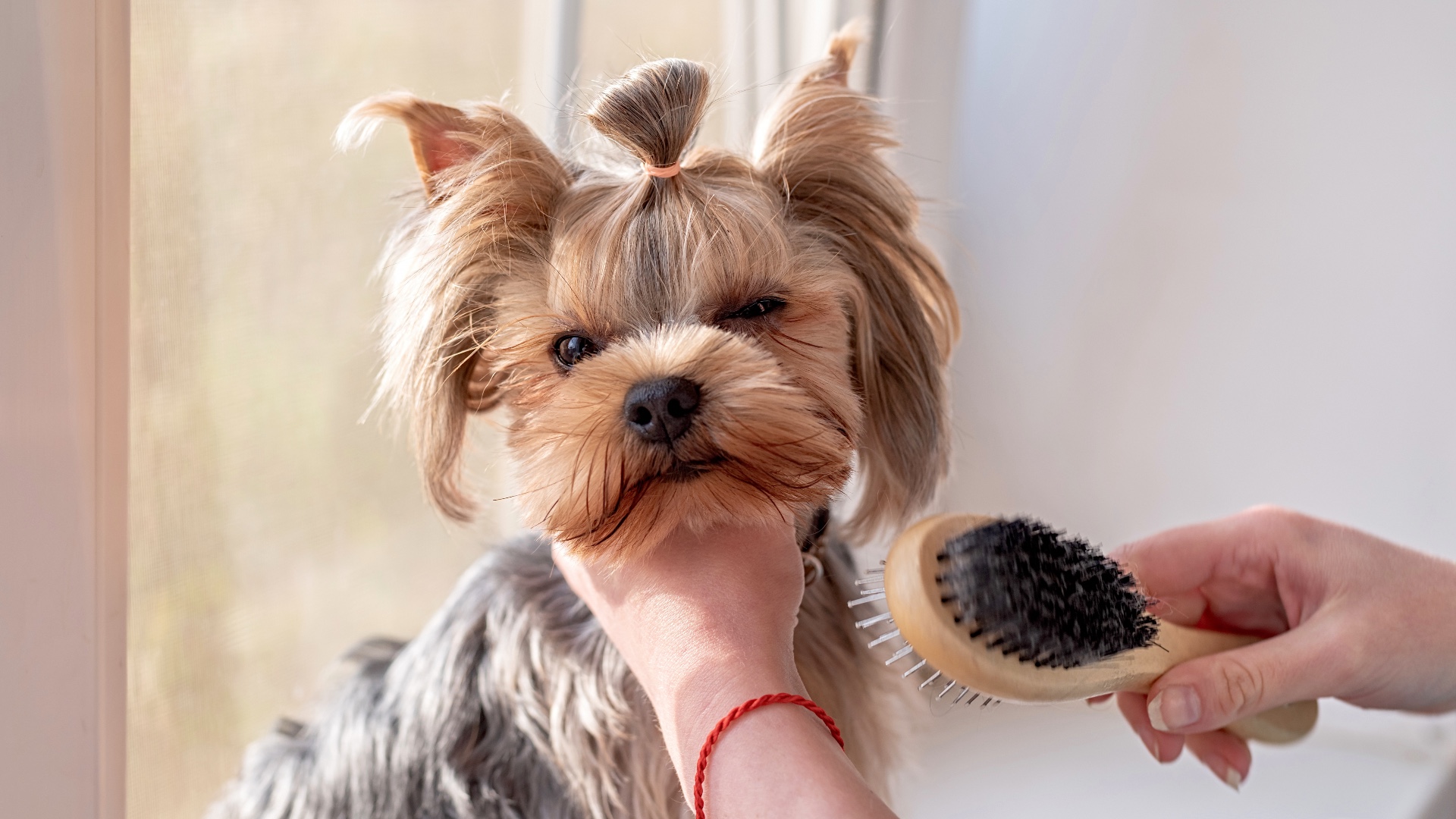
2. Boredom
It may be even simpler than that though: some dogs may just recognise the brush as signalling a time where they have to lie still when they could be up, exploring, running around and enjoying themselves. They may just feel that they are too busy for all this sitting down business!
3. Wrong choice of brush
It may also be your choice of brush: if it is too hard or the bristles are too sharp, they may find it uncomfortable and so aren't keen to have it next to their skin.
Fortunately, there are a variety of brushes to choose from, so you can try a softer brush first, or a dog grooming glove for a more intimate grooming experience. Our list of the best dog brushes will give you a good place to start to find one to suit your furry friend.
Whatever the reason your dog avoids being groomed, if you go about it in a gentle and loving way you can soon have your dog understanding that brushing is nothing to be feared or avoided.
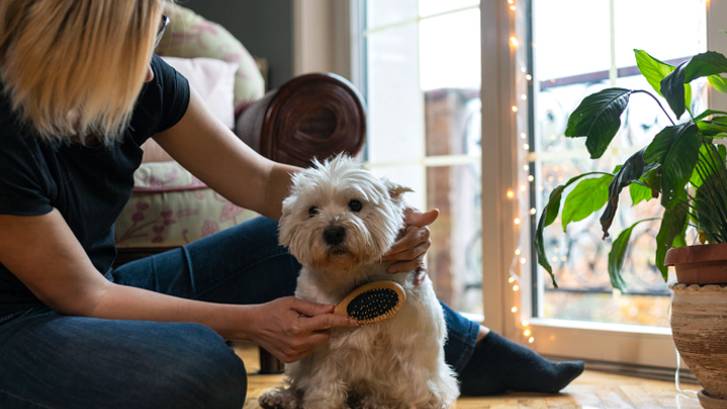
How to brush an uncooperative dog
If your dog backs away or cowers at the sight of a dog brush, you need to teach your dog that the brush isn't a bad thing. To do this you need to build a positive association with the brush:
1. Find a large, enclosed place
Look for a place where your four-legged friend has room to move freely and back away, but not run away completely. The kitchen, or the area where you feed them food, is good for this as they will already have good associations with this space. A patio or garden is also ideal.
2. Fill your pocket or a protective bag with treats
You'll need quite a few treats but you only want your dog to get access to them when you want them to. If you are worried about giving them too many treats, just take part of their dinner to treat them with.
A couple of the best dog treats shouldn't harm them though, and are more likely to entice them to do what you want them to do.
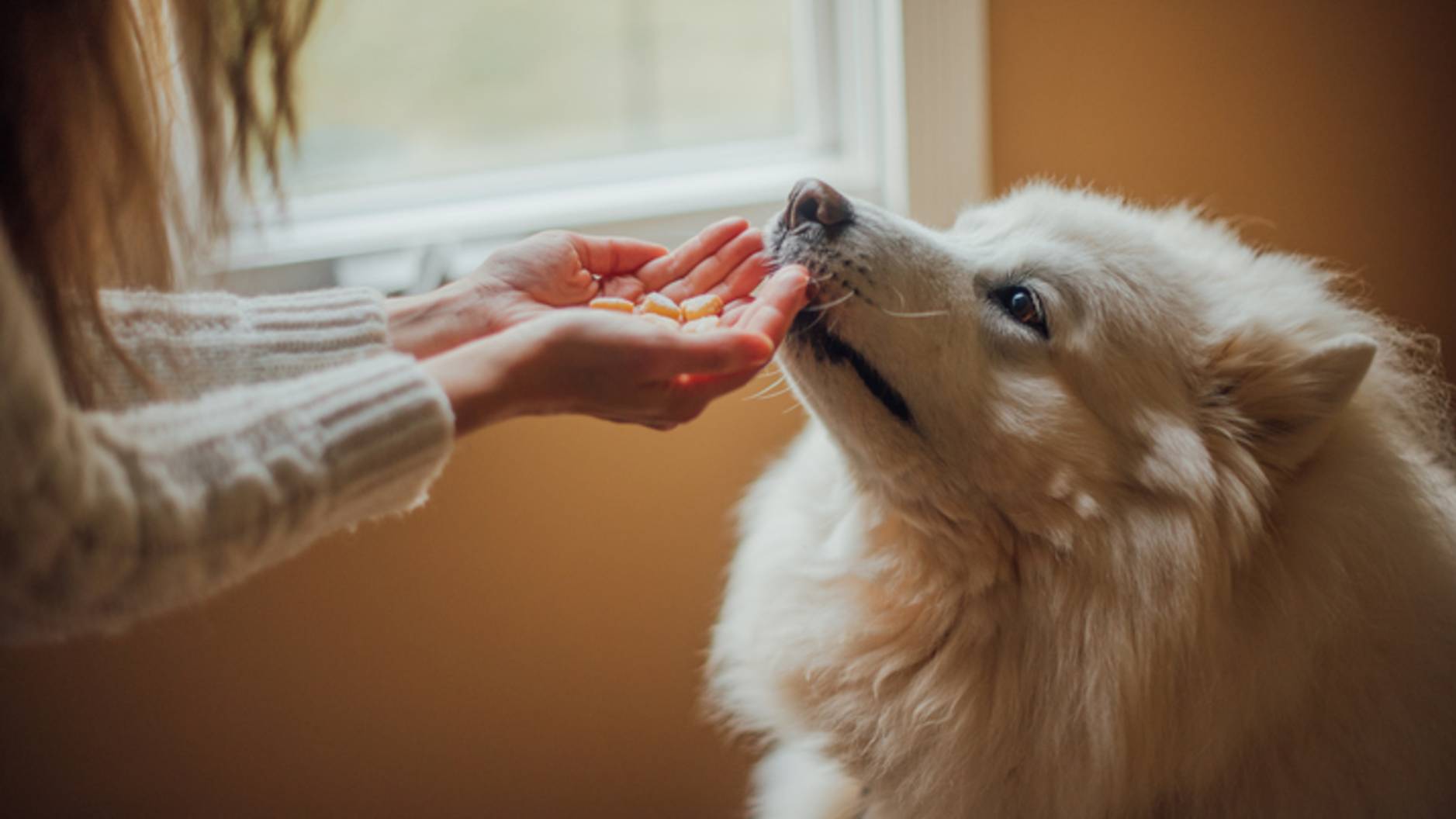
3. Get on the same level as your dog
With the brush in your hand, sit down so you are on the same level – not brandishing it, just laying it limply on your lap. Entice them over with a treat. Patience is the key here. This is all about gaining the dog's trust so don't force them over or get frustrated that they aren't doing what you want. This will just reinforce bad associations with the brush.
Instead let them come forward – it must be their choice to come near the brush to get to the treat. Reinforce that the behavior is good by praising them when they do.
4. Get them used to the brush
Once they are pretty much ignoring the brush to get to the treat, throw a treat away to get them to move away and reposition the brush so it is above where the dog will be when they come back to get another treat. Again, entice them over, giving them time to do so on their own terms.
Once they are ignoring the brush above them, lower the brush to head height, so they have to push past it to get to the treat. This can take a few brush introduction sessions before they are doing this naturally, so, as always, be patient.
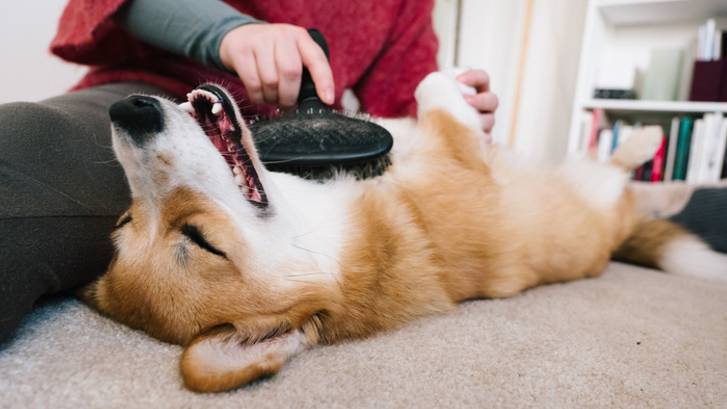
5. Start small and distract
Once they have learnt that the brush isn't to be feared, it's time to actually start doing some brushing. Start with just a small area first, letting them get used to the brush and rewarding them every time they stay to be groomed.
Another good way of distracting your dog if they are still being skittish during grooming is to give them something too good to miss out on, but which they can't wolf down all at once.
A good one for this is peanut butter on a spoon, or a slowly dispensing dog paste in a tube, both of which will take longer for them to lick away at, and keep them happy while you brush them.
6. Reduce the number of treats
Over time you can reduce the number of treats by replacing them with lavish praise. Soon, cowering from the dog brush will be a thing of the past, and your dog can enjoy you looking after them in this way.
PetsRadar Newsletter
Get the best advice, tips and top tech for your beloved Pets
Jamie Middleton is a freelance editor and writer who has been editing and creating content for magazines and websites for over 20 years. As well as writing about the pets he loves, he has helped create websites about tech and innovation like TechRadar.com, Innovate UK and TechSPARK, written programmes for music festivals, books on inventions and architecture, TV listings magazines, and edited publications about cars such as Lexus, Toyota and Jaguar. In his spare time he writes fiction books and poetry - or at least he does when he is permitted to by his cat Pirate, who enjoys the warmth of laptops too much to allow being creative to get in the way.
